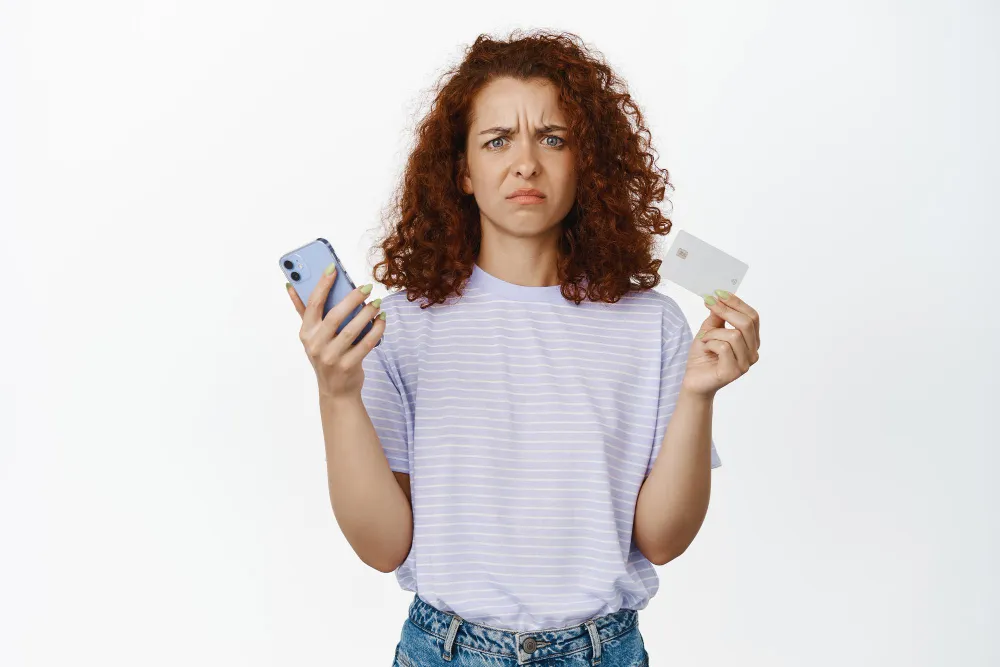Is It Time to Stop Using Your Credit Card? Here’s How to Know
The credit card can be super helpful — but what if it starts working against you? Maybe it’s time to take a break. Take a look!
Are Credit Cards a Useful Tool or a Financial Trap? It Depends on You.
So, how can you tell if it’s time to stop using your credit card?

Let’s go over the main signs that might indicate you’re using your credit card too much — and how to know when it’s time to hit pause.
1. Your Balance Keeps Growing Out of Control
If your balance is constantly going up and you’re unable to pay off your card, it might be time to pause and rethink your spending habits.
Why it matters:
Credit card interest rates in the U.S. tend to be high — often over 20% annually.
What to do:
Take a close look at your spending. Are you really buying what you need?
2. You’re Not Paying Off the Full Balance Each Month
One of the biggest benefits of using a credit card is the ability to pay off the full balance every month and avoid interest charges.
But if you’re regularly only paying the minimum (or less), that’s a warning sign. Not only do you end up paying interest, but it could also hurt your credit score.
Why it matters:
Credit cards make it easy to spend even when you can’t pay it all back. But each month you carry a balance, you pay more interest — and things can spiral fast.
What to do:
Ideally, commit to paying your full balance each month. If you can’t, consider taking a break from using your card until you’re back in control.
3. You’re Accumulating Debt Faster Than You Can Pay It Off
Debt can sneak up on you — especially when you use your credit card for everyday expenses.
If you’re piling on more debt each month without a solid plan to pay it down, that’s a red flag.
Why it matters:
Using a credit card for groceries, gas, or other basics might seem harmless, but it can quickly turn into a mountain of debt.
What to do:
Create a budget and cut unnecessary expenses — yeah, it might hurt, but it’s necessary.
You might need to stop using the card entirely to prevent the situation from getting worse.
4. You’re Using It for Non-Essential Purchases
It’s easy to swipe your card for dinner out or that shiny new phone — even if you don’t really need it.
If you’re consistently relying on your credit card for luxuries or wants instead of needs, it might be time to take a step back.
Why it matters:
Credit cards often tempt us to spend more than we should — especially with those reward points that make us feel like we’re “winning.”
But spending on non-essentials can seriously mess with your financial health.
What to do:
Redirect your spending. Make a clear list separating needs from wants and commit to using your card only for essentials.
If needed, freeze your card (literally or metaphorically) or stash it somewhere out of reach while you reset your habits.
5. Your Credit Score Is Dropping
Your credit score is a big deal — and missing payments or carrying large balances can cause it to take a serious hit.
If you’ve noticed your score going down, it’s time to reconsider how you’re using your credit cards.
Why it matters:
A solid credit score helps you get lower interest rates on loans, rent apartments, and even land certain jobs.
If your habits are putting your score in danger, it’s time for a financial reality check.
What to do:
Track your credit score regularly. If it’s falling due to high card usage, take action: pay down debt, reduce your credit utilization, or fix any errors on your credit report.
Final Thoughts: Should You Stop Using Your Credit Card?
There’s no one-size-fits-all answer. What really matters is understanding your current situation.
The key to healthy credit card use is discipline.
If you’re able to use your card responsibly — paying off the balance in full each month and avoiding unnecessary debt — it can be a powerful financial tool.
But if you’re stuck in a debt cycle or relying on your card for things you can’t afford, it might be time to take a break and reassess your financial habits.





